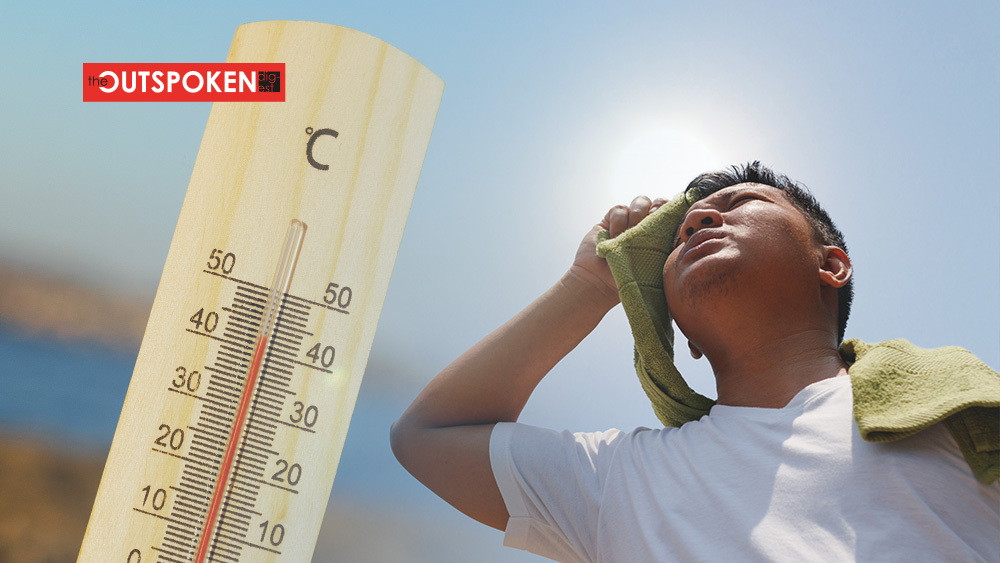Summer’s silent killer: what to do in the event of a heat wave?
With the rising environmental concerns caused by global warming, reducing our carbon footprint has become an urgent priority. This means that we need to find ways to reduce our reliance on fossil fuels and shift to renewable energy sources. Our planet faces serious threats as a result of global warming, which can result in severe changes in large-scale regional weather patterns. This in turn leads to more extreme weather events, flooding, drought, and wildfires. All of these effects can have an adverse impact on human health, agriculture, and wildlife.
This summer season, unprecedented temperatures are forecast to reach levels that can harm human life and ecosystems, causing heat exhaustion, dehydration, and other heat-related illnesses.
Heat is a silent killer.
According to a study in the journal Nature Medicine, Over 70,000 deaths occurred in Europe during the summer of 2003. Summer 2022, was recorded as the hottest season on record in Europe, counted 45,184,044 deaths from 823 neighboring areas in 35 different European nations, or more than 543 million individuals in total. Between 30 May and 4 September 2022, the study projected 61,672 (95% confidence interval (CI) = 37,643-86,807) heat-related fatalities in Europe.
Another study stated that it is expected that the number of locals in the Mena area who would pass away annually due to heat-related causes would increase to nearly 123 per 100,000 people in the final two decades of the century. By 2100, over 138,000 people will probably die each year from heat-related causes in Mena countries. The largest effects will be felt between 2021 and 2100 in Iran, where the mortality rate from heat is the highest. Additionally, rates will be high in Israel, Iraq, and Palestine.
In the event of a heat wave, what should you do?
Here are some tips to help you go through this extremely uncomfortable hot weather and reduce the risks of illnesses and complications such as heat strokes, hyperthermia, and heat exhaustion.
-Monitor weather news to know when to expect heat waves.
Knowing when to expect heat waves can help you make a plan for how to modify necessary activities during a heat wave to keep out of the sun. You can also build structures that can be quickly put together in high temperatures, such as cooling and/or shade structures.
-Drink plenty of water even if you are not feeling thirsty.
Always keep a water bottle beside you during extreme hot temperatures. Body water helps you regulate body temperature and helps your body cool by dissipating heat through sweating and sweat evaporation. Drinking water helps replace the fluids lost due to sweating and encourages your body to sweat more, which helps lower your body temperature. Staying hydrated also helps your heart pump blood more efficiently and helps your body use energy more efficiently.
-Avoid high-impact sports activities during the peak heat hours.
During extremely hot weather, you shouldn’t worry about your fitness goals. The heart needs to work even harder to deliver blood to the skin surface where it is cooled and returned to recirculate. This can accelerate fluid loss. Heat stress can occur during high-impact workouts where sweat can’t evaporate fast enough to keep the body cool. Dehydration can lead to dizziness, fatigue, and difficulty concentrating. It is important to stay hydrated and take frequent breaks to ensure your body is not overworked in hot weather.
In conclusion, it is very critical to pay attention to your body’s signals, take extra precautions in hot temperatures and stay hydrated. Taking breaks in air-conditioned places and drinking plenty of water can prevent heat-related illnesses.
Preventive action to reduce climate change impacts on health is essential during extreme weather events. Institutions, and individuals must work together to reduce emissions and limit the effects of climate change. This includes using renewable energy sources, conserving water, and investing in better infrastructure.








